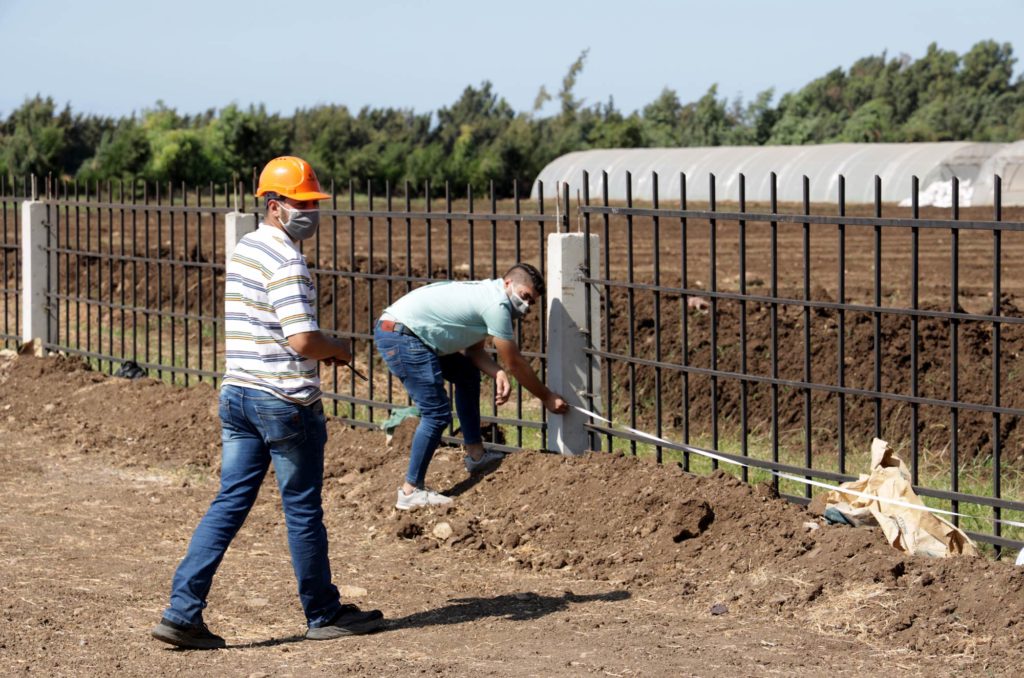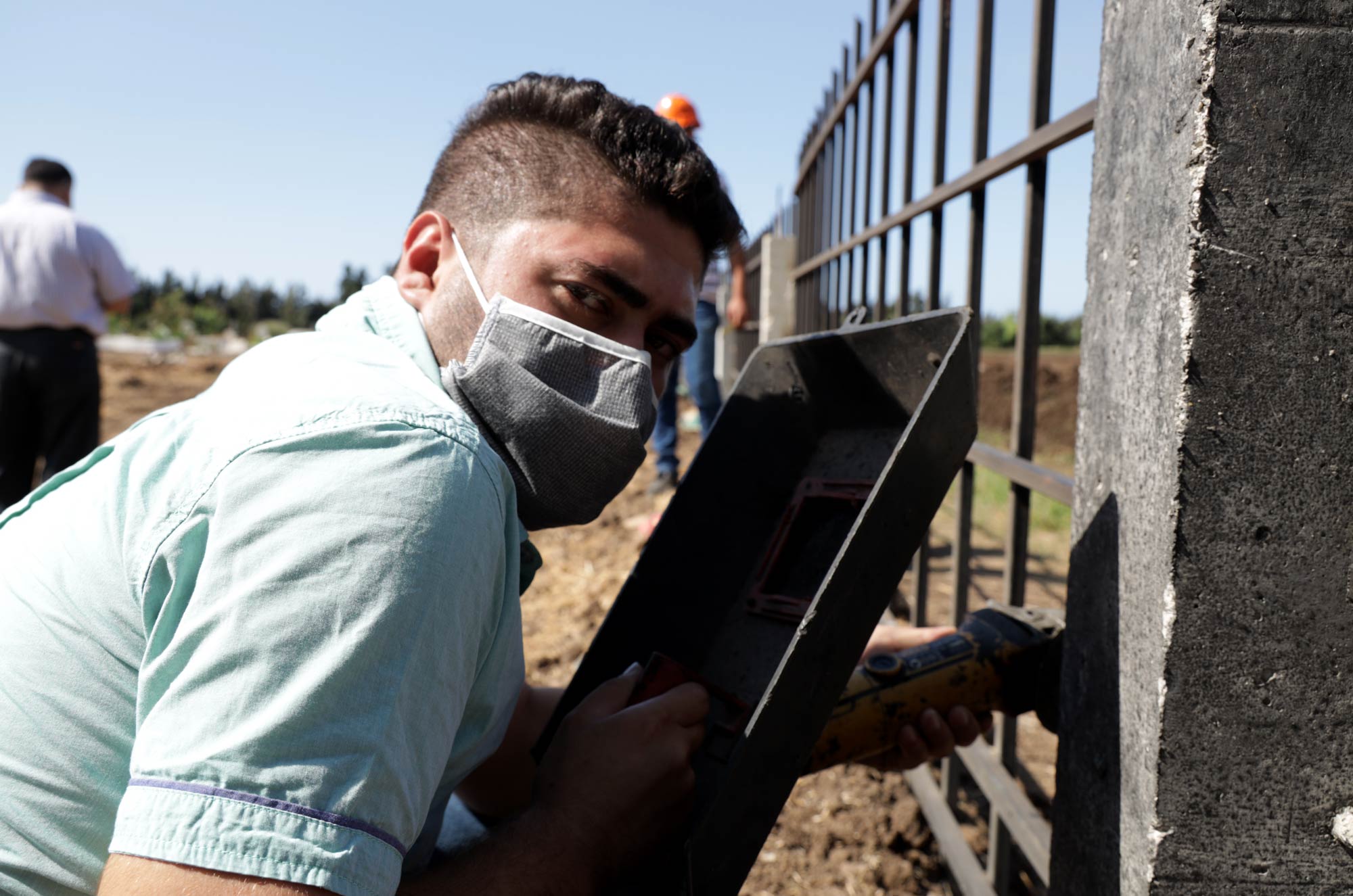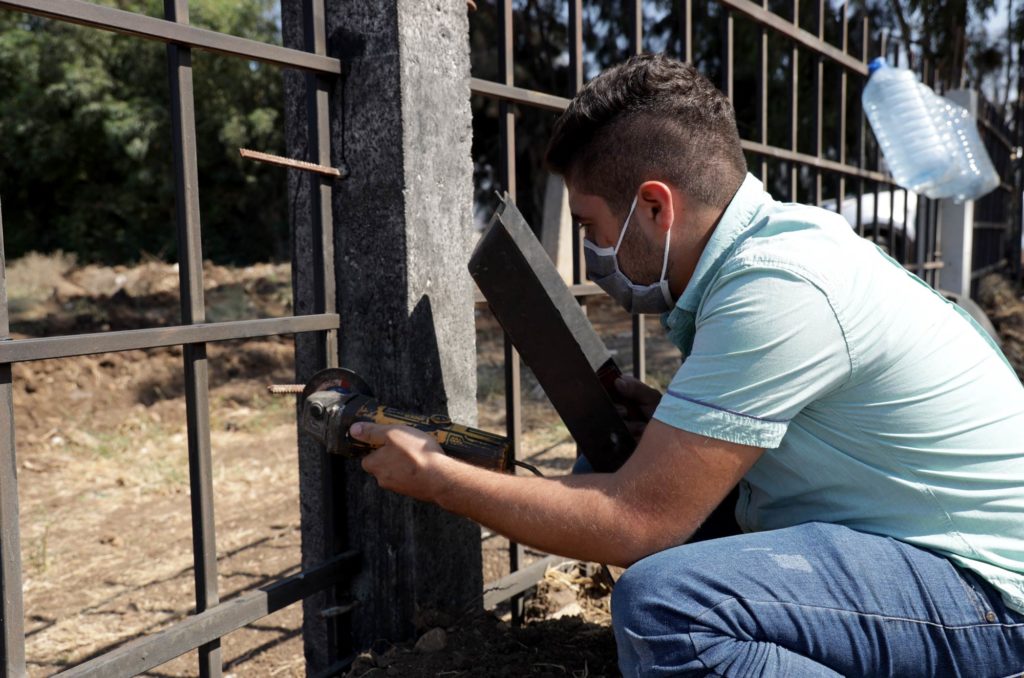COMMUNITY
The Only Cemetery for Refugees in Lebanon
Oct, 2020
“[Refugees] won’t need to hide at night while burying their loved ones.”
Cemeteries help humans preserve the memories of our loved ones and they remind us to honor the past. For almost nine years, Syrian refugees in Lebanon have struggled with where to bury their dead.
Legal constraints, land ownership restrictions, and xenophobic attitudes by some host communities, have forced many Syrians to bury their loved ones illegally in any available patch of land.
Anera has partnered with the Union of Relief and Development Associations to create a cemetery for Syrian and Palestinian refugees. URDA bought 1.25 acres of land for the purpose, in response to a tragic episode in which a Syrian refugee child was barred from being buried in a village in northern Lebanon.


To help establish the newly purchased land, Anera employed young people in the area to build a fence. They are graduates of our UNICEF-funded vocational training courses on construction and welding in Akkar. As local residents themselves, these young people are modeling tolerance and kindness across refugee and host communities.
Ibrahim Itani is the programs manager at Taalof, Anera’s local partner organization. He says,


“These construction and welding course trainees constructed the pillars surrounding the cemetery. They custom made the fence itself and installed sturdy, handmade metal gates. They were 20 proud young men who took their mission very seriously.”


Ayman, an 18-year-old young Lebanese trainee from Akkar, said,


“Syrians are not allowed to bury their loved ones in many villages in Lebanon — it’s such a shame! I am proud to have been one of the people who built this fence. It’s the humane thing to do."


“I also learned so much from this experience! Hopefully it will help me find a construction job in the future.”
Mostapha Abdo, the head of the URDA in North Lebanon, comments,


“This cemetery is crucial and the need for it… it’s beyond necessary. Refugees from all around Lebanon can formally bury their dead here. They won’t need to hide at night while burying their loved ones.”


This project, part of our Youth Empowerment, Education and Employability program, is funded by Germany through the German Development Bank KfW, supported by UNICEF, and implemented by Anera.


